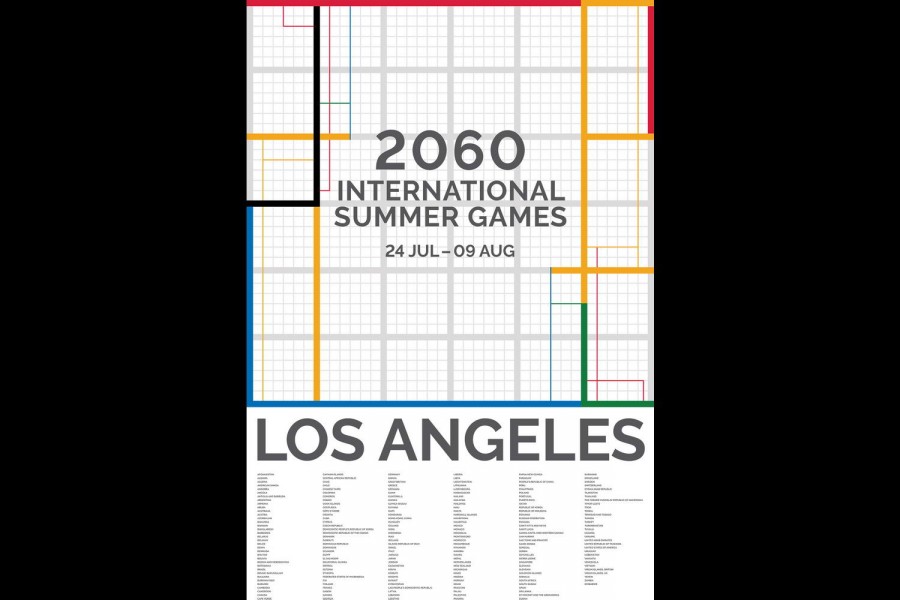URB-E wants to give Los Angeles 2060 back to its human occupants, it says, by parcelling up the city into four mile-long-square 'Gigablocks'. In these zones, no cars or fast-moving transportation devices are allowed, making the streets totally safe for humans to mill about on them, checking their social media apps or generally just loafing from place to place.
Instead, everyone has a personal transportation device for the areas within the Gigablocks, which are ringed by arterial roads. A person wanting to go and view sport in another Gigablock messages the cloud as to where they want to go, and an automated bus-like mass-transit device turns up to pick the pedestrian up.
As it travels along, other 'buses' join up with it to briefly form a road train before splitting again to go to different destinations, and the pedestrian's seat is automatically moved to the correct bus to ensure they complete their journey as desired. Then, once back off the bus and in another Gigablock, the pedestrian again uses their mobile transportation device to get about - although the animation just shows a guy walking along pushing said device, so his own mobile transportation device in fact turns out to be his legs. Hmm, that's 43 years of progress for you.
Based in Pasadena, California, URB-E designs and engineers lightweight, foldable electric vehicles and mobile power sources. The team of Daniel Seman, Evan Saunders, Grant Delgatty, Mel Raymundo, Peter Lee and Sven Etzelsberger wanted to focus on the Gigablocks plan as it 'would eliminate the need for large cars on small roadways while replacing roadways with mixed living spaces'.


